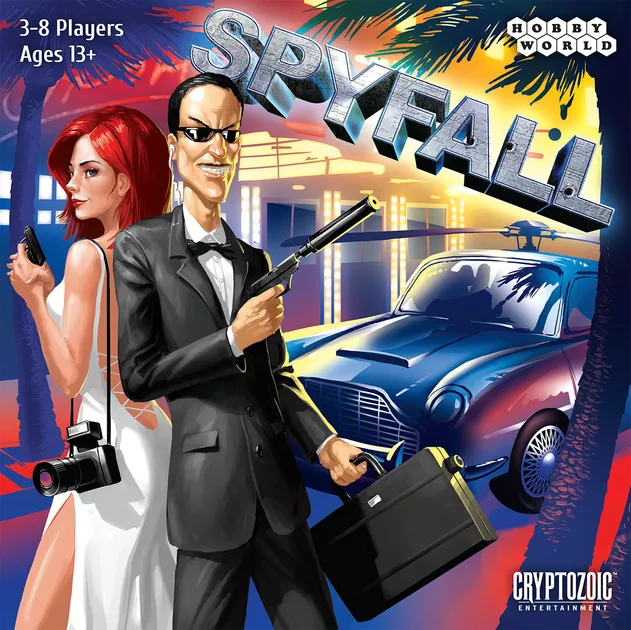This week for my critical play, I played Spyfall on the website netgames.io on PC. It seems like the game is targeted towards teens and young adults given its premise (there’s a Spy among us), and the fact that the game itself is relatively complex, especially when initially trying to learn and adapt to the strategy.
Elements
When it comes to players, it seems like unilateral competition because its a team of people who know some main location trying to uncover the single spy that’s sneaking among them. When it comes to actions the players can take, they’re essentially restricted to two choices: answering or asking a question. A given player will begin by asking a question to some other player to figure out whether they are the spy or not based on whether it seems like their answer suggests they know the supposed location. Play takes place across some fixed amount of time, and if the time runs out the spy automatically wins. If they catch the spy, the spy has one way to still win: if they can correctly guess which location everyone else is in. When it comes to relationships, players are forced to develop trust and break that trust, especially if they’re the spy. There’s always an air of suspicion amongst players since you never know who is actually the spy. For resources, the main resource is your knowledge of the location and how much you share of it with the group in order to prove your innocence, and as the spy you’re trying to mooch of the other players.
The game’s main objective is outwit as players have to try and trick and see through tricks to catch the spy, figure out the location, or hide the fact that they may be the spy.
Comparable Games
Its most definitely a social party game, I’d say similar to Werewolf in that there’s spies trying to defeat a larger majority team but the spies have the element of surprise to help them comeback. I think the game forces better social interaction by making players ask each other questions and also gives you more of a basis to make accusations that something like Werewolf where, especially without a Seer, everything feels arbitrary. In my opinion, any social deduction game should give you more tools to help you deduce who the “bad” players are for the “good team”. I think if your goal is to have passive conversation however, the game forces deep immersion since you’re always asking, answering, or closely listening to questions.
How Fun Was it?
The game was incredibly fun! It does a great job of creating moments of betrayal and confusion through meaningful social interaction and strong foundations for reasoning. It has interesting mechanics taking advantage of asymmetric information and leaves a lot of room for players to interpret rather than just follow a strict set of rules. The emergent nature of the questions that are asked makes the game feel fresh across multiple play-throughs.
The game focused on fellowship and challenge (in deceiving or seeing through deception).
Moments of Success or Epic Fails
This game is really hard to understand at first. The strategy doesn’t make intuitive sense and we had multiple games where a player would accidentally say what the place was because they forget they weren’t supposed to say it. They would then be confused why everyone was mad at them at which point we’d have to explain the rules a couple more times.
Once players understood the game, however, there was so much deception and mistrust which seems to be the goal of the game. Players are at each others throats and beating themselves up for making the wrong accusations and misunderstanding someone else’s answer. I know I was angry at myself multiple times for being too aggressive towards someone who gave a sus answer, but such is the nature of the game lol.
To Change
I would add a better on-boarding process, maybe having some cards that have some sample questions to give new players some intuition around the types of questions to ask. Scaffolding the understanding of the strategy would help players get to the fun part of the game faster: deceiving and seeing through deception.



